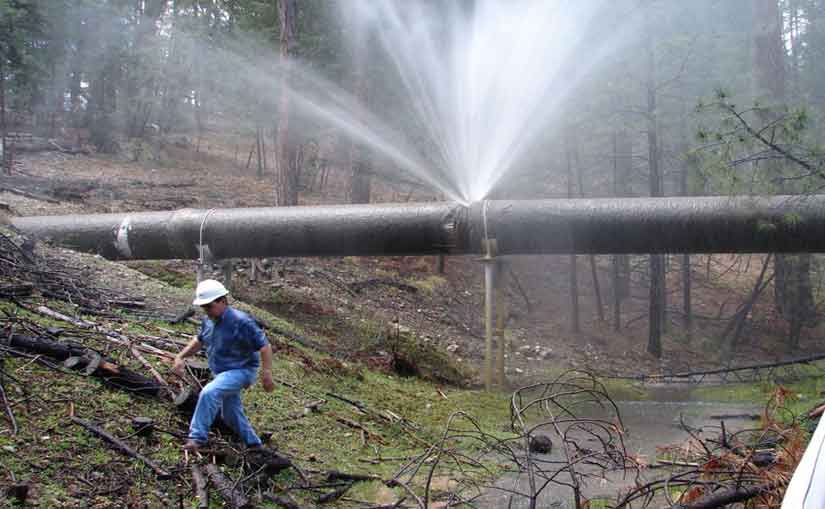After a hard day at the gym, you just can’t wait to go home to have your shower. You didn’t use the gym shower because it was like a public facility with all the gym-goings that came and went. You just maintained a locker there that had extra shirts. A small, wet towel was enough to cool you down and freshen you up before you left. On your way home, you decided to drop by your favorite bath shop to buy your favorite soap and bubble bath. In just a few minutes, you arrived home and prepared for your shower. You wanted a hot bath to relax you so you let the water run from the shower for a few minutes first. When you came back to your supposedly relaxing shower turned into a very stressful one. There was a foul odor coming from the shower and you very well know that odors coming from the shower can mean trouble.
You turned off the shower and called your septic expert. The thought of showering with that kind of shower water made you itch a bit. You almost washed your body with water that had traces of septic water. When the septic expert arrived, he said that there was a heavy malfunction with your cesspool. You told him that you always had your cesspool pumped. He said that there are so many other reasons why the cesspool could back up or fail.
Here are some of the reasons that he gave you:
1) Grease dumping
Many homeowners fail to realize that even if you use your garbage disposal in dumping fats and grease into your cesspool, It doesn’t change their fatty composition. These substances are not readily broken down by the resident bacteria. They just stay there and get distributed with the effluent until they clog the soil absorption system and cause the back up or failure.
2) Dumping of non-biodegradable materials
If you dump diapers, napkins, tampons, or plastic materials in to your toilets, drains, and sinks, they heavily clog the system and cause it to fail. The resident bacteria can’t break them down. The cesspool system will fail if you continue this kind of practice.
3) Antibacterial habit
Harsh chemicals and antibacterial cleaners are often used by many homeowners to get rid of dirt and pathogens in their homes. If these products are continually used, the resident bacteria are killed off and the cesspool stops functioning. You should change what you use into bacteria-friendly products that could clean and sanitize but still keep the cesspool bacteria safe.
4) Water load issue
The water load that enters the system increases dramatically when the rain gutter is diverted towards the area of the cesspool, if the laundry load is done once a week, and the number of people living in your home is beyond the capacity of the system. You should redirect your gutter away from the cesspool area, divide your laundry load into several days a week, and talk to your septic expert to make adjustments in the size or number of tanks in your system to accommodate the larger household.
5) Raining and pumping out
You should not pump out your system during heavy rainfall because all the sediments and silt will just enter the system and cause it to fail.
6) Vehicles constructions, and trees on the cesspool area
The heavy weight of construction forms and vehicles will cause damage to the components of the cesspool. Tree roots penetrate the cesspool components, resulting to heavy clogs and damages. Transfer them to a portion of your yard that doesn’t have any cesspool component in it.
7) Not keeping the pumping on schedule
You should also make sure to adhere to your pumping schedule to get rid of the sludge and prevent clogging and failure.
After a while, the cesspool system was corrected. You then enjoyed the hot, relaxing, aromatic shower that you needed that day. You told yourself that you would be following the guidelines given by the septic expert so that your showers would remain odorless from then on. Remember, Odors coming from shower can mean trouble.


